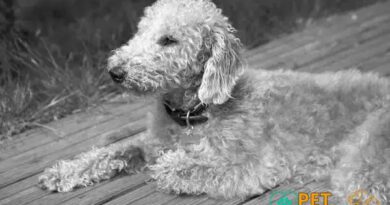What is cognitive games for dogs
What Are Cognitive Games for Dogs?
Cognitive games for dogs are specially designed activities that stimulate a dog’s mental faculties. These games challenge dogs to think, solve problems, and engage their brains in ways that traditional physical exercise may not. By incorporating cognitive games into your dog’s routine, you can enhance their overall well-being and strengthen your bond with them.
The Importance of Mental Stimulation
Just like humans, dogs require mental stimulation to stay happy and healthy. Cognitive games for dogs provide an outlet for their natural instincts and intelligence. Engaging in these activities can help reduce boredom, prevent destructive behaviors, and alleviate anxiety. Mental challenges can also improve a dog’s focus and obedience, making training sessions more effective.
Types of Cognitive Games for Dogs
There are various types of cognitive games for dogs, ranging from puzzle toys to interactive games that require problem-solving skills. Puzzle toys often involve hiding treats that the dog must figure out how to access. Other games may include scent work, where dogs use their sense of smell to locate hidden items. Each type of game offers unique benefits and can cater to different breeds and personalities.
Benefits of Cognitive Games
Cognitive games for dogs provide numerous benefits beyond mere entertainment. They can enhance a dog’s cognitive abilities, improve their memory, and increase their confidence. Additionally, these games can help with socialization, as many cognitive activities can be played with other dogs or humans. The mental engagement fosters a sense of accomplishment and satisfaction in your furry friend.
How to Choose the Right Cognitive Game
When selecting cognitive games for dogs, consider your dog’s age, breed, and individual preferences. Some dogs may thrive on more challenging puzzles, while others may prefer simpler tasks. It’s essential to start with games that match your dog’s skill level and gradually increase the difficulty as they become more adept. Always supervise your dog during play to ensure safety and prevent frustration.
DIY Cognitive Games for Dogs
You don’t need to purchase expensive toys to provide cognitive stimulation for your dog. Many DIY cognitive games can be created using household items. For example, you can hide treats in a muffin tin and cover them with tennis balls, encouraging your dog to figure out how to remove the balls to access the treats. These homemade games can be just as effective and enjoyable for your pet.
Incorporating Cognitive Games into Daily Routine
To maximize the benefits of cognitive games for dogs, incorporate them into your dog’s daily routine. Set aside specific times for mental challenges, alongside physical exercise and training. This balanced approach ensures that your dog receives a well-rounded experience that caters to both their physical and mental needs. Consistency is key to keeping your dog engaged and stimulated.
Signs Your Dog Enjoys Cognitive Games
Observing your dog’s behavior during cognitive games can provide insight into their enjoyment and engagement levels. Signs that your dog is having fun include wagging their tail, barking excitedly, or showing eagerness to participate. If your dog seems frustrated or disinterested, it may be time to adjust the difficulty of the game or try a different type of activity.
Conclusion: The Lasting Impact of Cognitive Games
Incorporating cognitive games for dogs into your pet’s life can lead to lasting positive effects on their behavior and mental health. By providing these stimulating activities, you contribute to a happier, healthier, and more well-adjusted dog. Remember that the goal is to have fun and strengthen your bond while keeping your furry friend mentally engaged.




